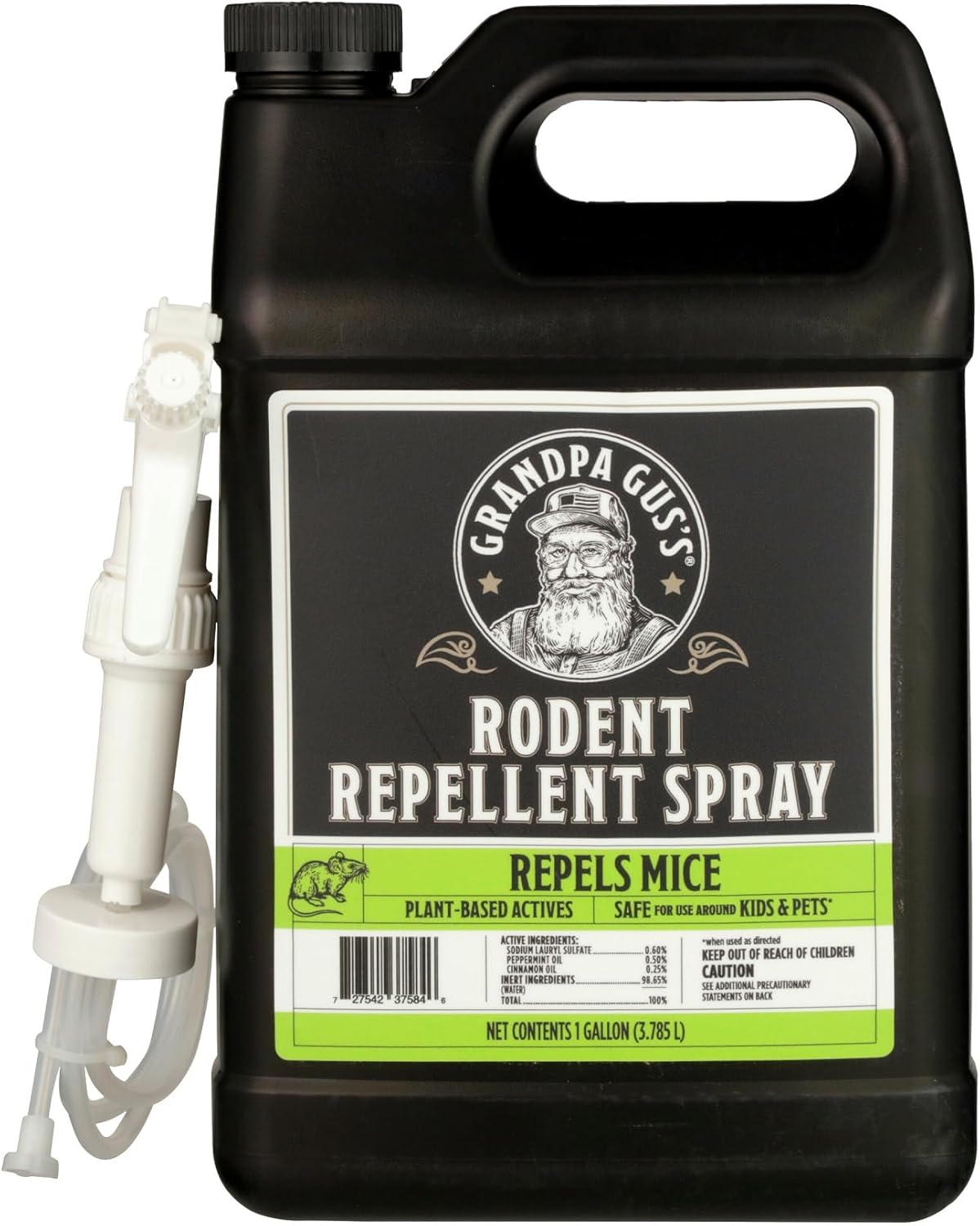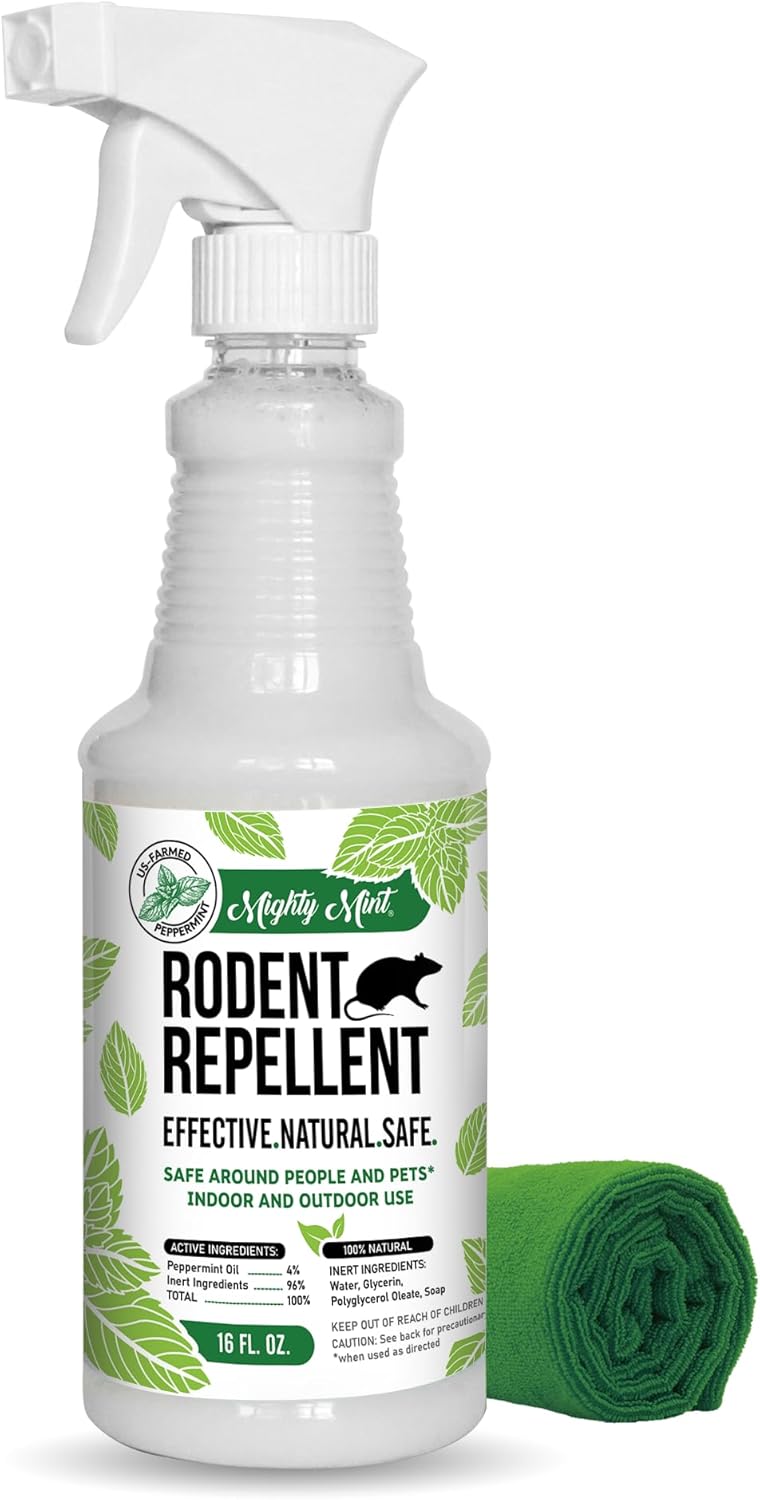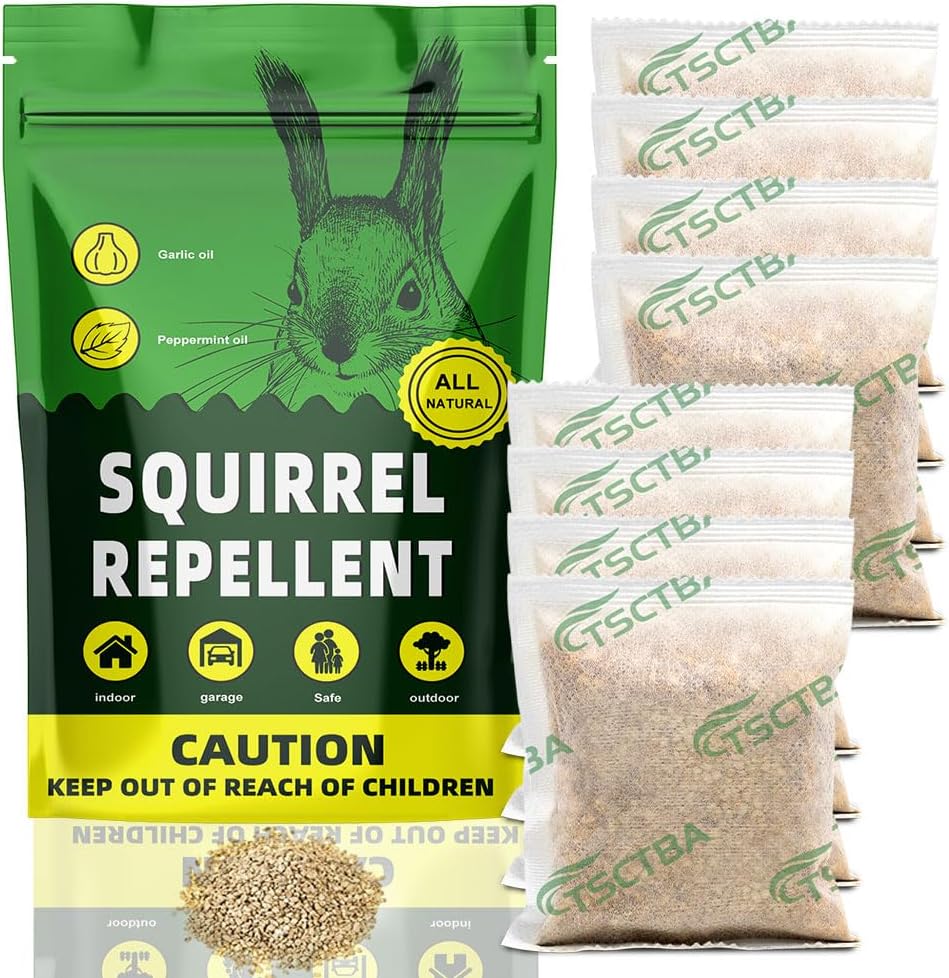Squirrel Control & Removal
While charming in outdoor settings, squirrels can become destructive pests when they enter homes or damage property. These agile rodents often access attics and wall voids through small openings, causing significant damage through their gnawing and nesting behaviors. Professional removal and exclusion methods are often necessary to prevent ongoing property damage.
Recommended Products
Grandpa Gus's Rodent Repellent
A natural repellent spray made with peppermint and cinnamon essential oils that drives away mice and rats through contact deterrence. This gallon-size formula is safe for indoor and outdoor use, providing chemical-free protection for homes, vehicles and storage areas.
- Essential Oil Formula
- Contact Deterrent
- Chemical-Free
- Versatile Application
Mighty Mint Peppermint Oil Rodent Repellent
This powerful natural rodent deterrent uses high-grade peppermint oil from the Pacific Northwest to effectively repel mice and rats. The extra-concentrated formula comes in a convenient 16oz spray bottle, offering a humane and pleasant-smelling solution to rodent problems.
- Premium Natural Formula
- Safe & Family-Friendly
- Highly Concentrated
PDKIVFI Squirrel Repellent Pouches
A concentrated natural repellent made with peppermint essential oils that creates an unpleasant environment for squirrels and chipmunks. Each pouch provides 60-90 days of protection for both indoor and outdoor spaces.
- Natural Ingredients
- Extended Protection
- Versatile Application
- Pet-Safe Formula
⚠️ Health & Safety Risks
- Electrical fire hazards
- Structural damage
- Insulation destruction
- Disease transmission
- Noise disturbance
🚨 When to Call a Professional
- Attic infestations
- Multiple squirrels
- Young present
- Structural damage
- Failed DIY attempts
🏥 Emergency Response
- Fire risk: Contact electrician
- Trapped animal: Call wildlife control
- Bite occurs: Seek medical care
- Structural damage: Document and repair
- Young found: Leave for mother
🔍 Identification & Signs
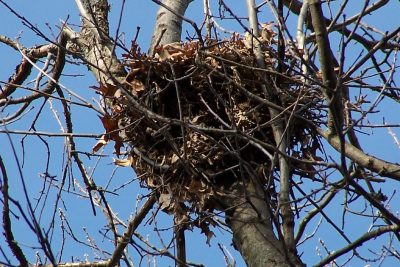
How to Remove Squirrel Nests from Trees: Safe & Effective Methods for 2025
Finding squirrel nests (or “dreys”) in your trees can be concerning for homeowners. While squirrels are an important part of…
Read More →🏡 DIY Removal Guides
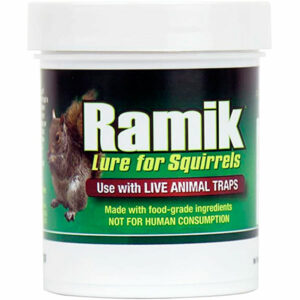
Best Squirrel Bait: Top Options For Effective Trapping in 2025
Dealing with pesky squirrels in your yard or home? The right bait is crucial for successful trapping. This guide reviews…
Read More →🛑 Prevention Tips
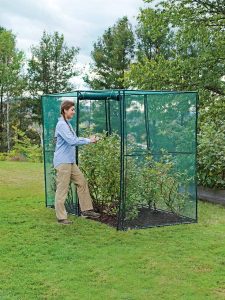
Best Squirrel Proof Garden Cage Guide: Protect Your Plants in 2025
Garden enthusiasts know the frustration of discovering squirrels have ravaged their carefully tended plants overnight. These persistent rodents dig up…
Read More →🔬 Professional Solutions & Products
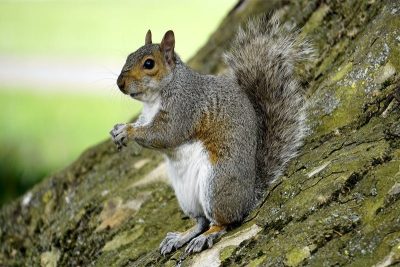
Squirrel Poison - Everything You Need to Know!
Dealing with squirrel infestations can be challenging for homeowners. While many seek a simple solution like poison, the reality is…
Read More →🐿️ Related Pests
Often confused with:
🔍 Signs of Activity
- Daytime noises
- Gnaw marks
- Entry holes
- Nesting material
- Damaged wires
🏠 Common Entry Points
- Roof intersections
- Soffit gaps
- Attic vents
- Tree access
- Chimney openings
Frequently Asked Questions
How do I know if I have squirrels in my attic?
Listen for running, scratching, or rolling sounds during daylight hours, especially early morning and late afternoon. Look for chewed entry holes and nesting materials.
What attracts squirrels to houses?
Easy access to shelter, warmth, nesting sites, and nearby food sources attract squirrels. Tree branches touching roofs provide convenient access.
How do I prevent squirrel entry?
Trim tree branches away from buildings, seal potential entry points with strong materials, cap chimneys, and install vent covers designed to exclude wildlife.
Can squirrels cause fires?
Yes, squirrels can chew through electrical wiring, creating significant fire hazards. They also damage insulation and structural components.
How do I remove squirrels safely?
Professional removal is recommended, especially when young are present. One-way doors and exclusion methods are often most effective.
Do repellents work on squirrels?
Most repellents provide only temporary results. Physical exclusion and habitat modification offer more reliable long-term control.
What if I find baby squirrels?
Leave young squirrels in place if possible. Mother squirrels usually return for their babies. Contact a wildlife professional for safe removal if necessary.
Will squirrels leave on their own?
Squirrels rarely leave established nesting sites voluntarily. Active removal and exclusion measures are typically necessary.
How do squirrels get in attics?
Squirrels can gnaw through weak spots, exploit existing gaps, or enter through uncapped chimneys and damaged vents. They can squeeze through holes as small as 1.5 inches.
How long does squirrel removal take?
Professional removal typically takes 3-7 days, but complete exclusion and damage repair may require several weeks of work and monitoring.
